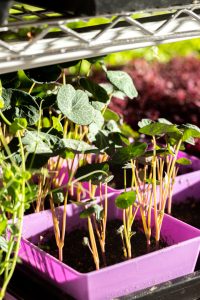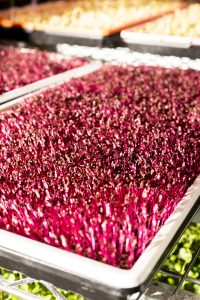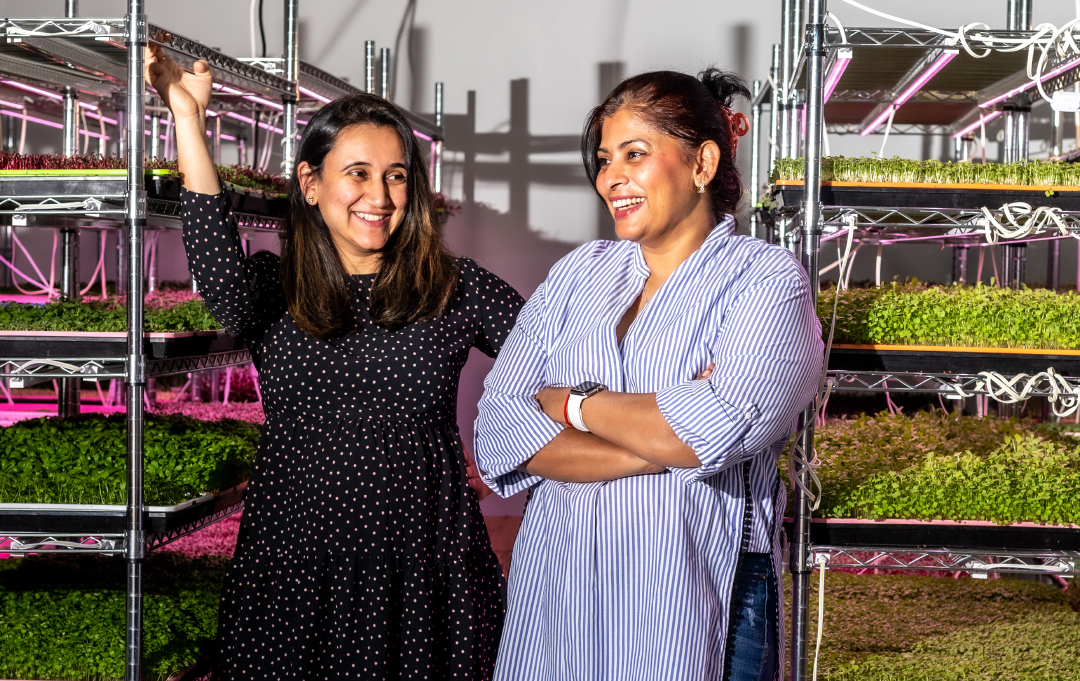Far from the sad salads of the past, greens have come a long way in their incorporation into everyday dishes. The leafy plants are full of vitamins and antioxidants, but each plant produces a small amount for the energy it takes to eat them.
This has changed in recent years with microgreens — tiny versions of greens and other plants that are even more potent than their larger counterparts and just as tasty. Even better, these microgreens can be purchased from local farms, like one owned by Plano neighbor Monica Gautam and co-founder Pooja Kumar.

Kumar and Gautam own Talise Microgreens, a farm started just over a year ago that distributes to many favorite local restaurants.
Kumar spent free time during the pandemic trying out different varietals and learning about the nutritional benefits of microgreens for her family. She discovered she could grow more than she needed and gave extras to family and friends. A mutual friend, knowing what an avid gardener Gautam is, suggested they work together.
Though both women have full-time jobs, feedback from people who tried their greens inspired them to create the business, and Gautam began pitching to potential clients. They are a minority, women-owned business, though Kumar says their product speaks volumes, eliminating a lot of the heavy lifting typically needed for marketing.
“Our biggest selling point is we do not have a middleman. Literally, when you say farm to fork, it is farm to fork,” Gautam says.
The pair and their employees grow, harvest and deliver 22 varietals. Clients are able to receive their greens within 48 hours of harvesting.
“Because we don’t have middlemen, we don’t have storage, we don’t have external delivery, and we give our clients the best price that is in the market,” Gautam says. “If anyone compares, they say our price beats everyone else, the quality, the price, the service.”
The business serves more than 20 restaurants, several private chefs and a few chains. Because of their stronger flavor, health benefits, sustainability and small size, microgreens have endless ways to be included in a meal.
“We were just thinking, ‘OK, there’s this amazing thing that we really believe in what it has to offer. How do we get it out to people,’” Gautam says. “And the biggest struggle that we had was the amount of education around it.”
Though microgreens can be used to make a salad, the powerful plants are small enough to pack tons of flavor into a dish without taking up too much space on the plate, which is the draw for many chefs, Gautam says.

“Chefs really like to get creative with all the flavors you get in that first bite. But there’s only so much real estate that can actually go into your mouth,” Kumar says. “For example, if you taste our radish, you will be amazed how spicy it is with just one leaf versus having something you pull off a vegetable from Trader Joe’s.”
Though they’ve experienced quick success, Gautam says they are having trouble hiring more employees. However, they offer flexible hours and are willing to hire teens and those who need workplace accommodations, but the dip in the labor market makes hiring difficult.
“We’re very grateful to all the clients that we have and all these big chains that we have, who’ve had so much faith in us,” Gautam says. “On our Instagram, they’re always pushing our name out there and sharing pictures of dishes that our microgreens have been used on.”





